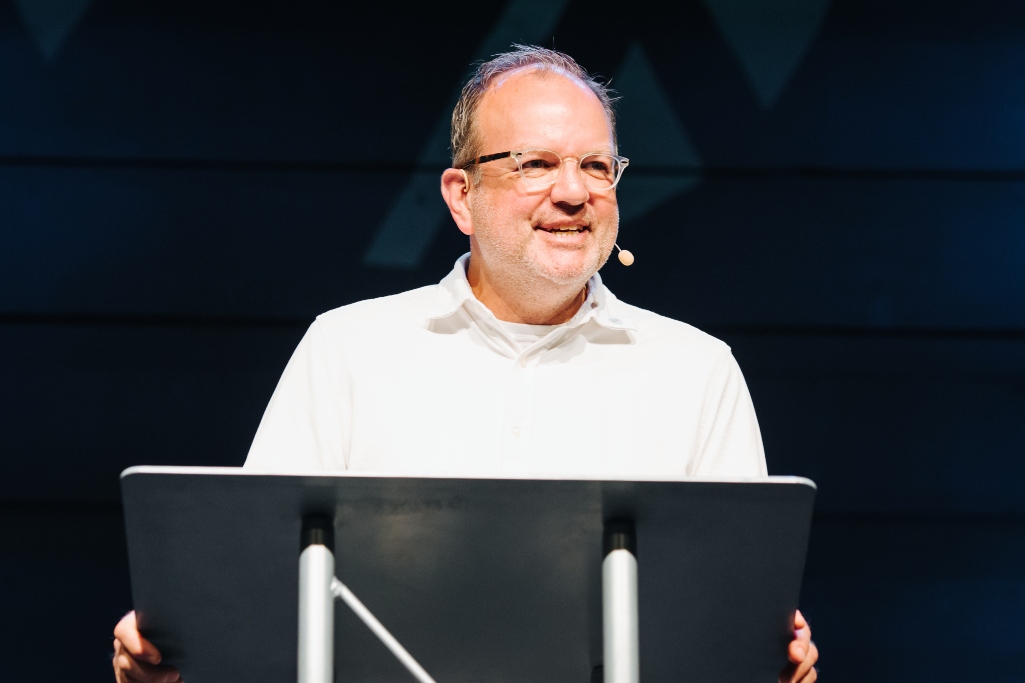
Many people assume a pastor never needs help, instruction or guidance, says Pastor Jerry Lewis.
In recent months, conversations about pastoral burnout have moved from lunch counters where pastors talk over a meal to the front pages of national news organizations like The New York Times, The Washington Post and Christianity Today.
While pastors have struggled through periods of burnout and depression for generations, recent surveys show those concerns may be growing. For example, an October 2021 Barna Research survey showed that 38% of Protestant clergy had seriously considered quitting that year. The percentage increased to 42% by March of this year.
Noting these concerns, several longtime N.C. Baptist pastors say churches can help ensure their leaders have the emotional, mental and spiritual vitality to lead them into the future. They provide five specific recommendations to churches for strengthening their pastors.
1. Acknowledge burnout and mental health issues are real for pastors.
Pastors have human limitations just like anyone else. Experiencing burnout and other challenges is a normal part of the life of pastors. It doesn’t disqualify them from service.
“Pastors are people,” said Jerry Lewis, pastor of Grace Community Church in Marion, N.C. “That should go without saying, but it doesn’t because 98% of the time a pastor is a helper, an instructor who provides guidance. Most people assume he never needs help, instruction or guidance.”
2. Respect a pastor’s time off.
Many pastors feel as if they are always on call. Not only do churches need to provide regular time away from ministry for pastors, but they should refrain from contacting them during their time off.
“Just the slightest text or call can pull a pastor’s mind into ministry mode,” said Jordon Willard, pastor of First Baptist Church of Weddington, N.C. “Sometimes it can be hours or days before you’re able to turn that ministry mindset back off. So the church as a whole can help pastors avoid burnout by respecting that time off, whether it be the weekly day off, or the vacation.”
3. Create a culture of care.
Chuck Whitley, pastor of Poplar Springs Baptist Church in State Road, N.C., notes that many small churches can’t provide a staff for pastors. At times, this can lead to pastors not believing they have the freedom to have weeks away from the pulpit.
“I think it would be good for churches to invest in lay leadership training,” Whitley said. “Whether it’s in the deacons, or the elders or whatever their leadership structure accommodates. The pastor should have help managing caseloads and things like that when people are in the hospital, or if the pastor needs a Sunday out of the pulpit, that there’s somebody that can just step right into that role.”
Lewis recommends churches build care of the pastor into regular reviews. Many churches may already do performance reviews, which usually focus on ministry tasks like preaching and leadership. That rhythm should also include opportunities to ask the pastors about their mental, emotional and spiritual health.
“There has to be somebody in the local church whose responsibility it is to check in with the pastor, not in a sense to muzzle the ox, but to check in and say, ‘How are you doing?’” Lewis said. “That ongoing cadence of checking in. It’s like with a physical illness. If you catch it early, you diminish its potential effects. The same is true with mental health.”
4. Pray for your pastor.
Heath Lloyd, pastor of Fairview Baptist Church in Reidsville, N.C., encourages churches to make a habit of praying for their pastor and his family.
“It’s vitally important that you pray for your pastor and his family, and let them know you’re praying,” Lloyd said. “It’s edifying when you know that people are praying for you. It’s strengthening.”
Lloyd notes he has one congregant who lets him know every week that he is praying for the pastor. It’s a powerful gift to give a pastor, he says.
5. Consider providing sabbaticals.
Sabbaticals provide pastors with a specific amount of time away from the weekly demands of ministry for rest and rejuvenation. Willard notes that sabbaticals can come in many forms. Churches can set their own schedules for how long and how frequent those sabbaticals are.
“I think they can be very helpful,” Willard said. “It’s another way for churches as a body to help a pastor build some good boundaries and avoid burnout,” Willard said.
Whitley notes that sabbaticals aren’t simply vacations or time off.
“When churches do this, they aren’t saying they want you to just sit in front of the TV and binge Netflix,” Whitley said. “(Instead, they’re saying) we don’t want you to worry about preparing sermons or whatever. We want you to get alone with the Lord, read some quality books and just feed your soul.”
(EDITOR’S NOTE – This article first appeared in the October issue of the Biblical Recorder magazine. The Baptist State Convention of North Carolina provides a pastoral health assessment and a number of helpful articles designed to strengthen pastors. Resources are available at ncbaptist.org/pastoral.)

